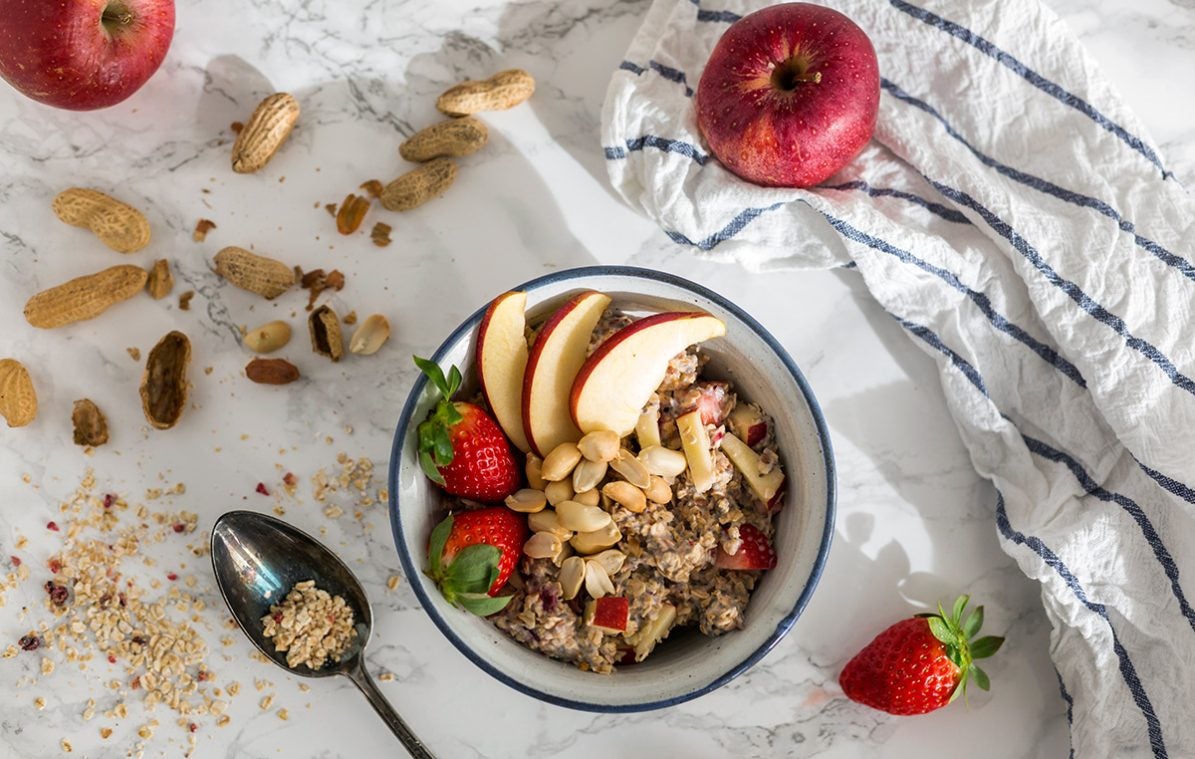If You’re Focused on Protein, Your Diet Might be Missing This
 ©Yulia Images
©Yulia Images
Among the fitness performance set, protein is king. Not sure what to make for dinner? How about some chicken. Want to celebrate a big occasion? Make a reservation at the steakhouse. No one, upon celebrating a new PR or an anniversary, thinks, “I’m going to treat myself with some fiber.” But those people focused on whole body health have touted the virtue of roughage and grains for a long time—and research finds they were on the right track.
Also worth reading: 12 foods for muscle building that you should always keep in your pantry
Researchers at Duke University in the U.S. were interested in finding out what kind of fiber had the greatest effect on the gut microbiome, and how fast it worked. To take a step back—fiber isn’t just what keeps you, ahem, regular. It seems to help the gut microbiome, which are the millions of bacteria that run the length of the digestive system. There are so called good bacteria and bad bacteria. Unhealthy diets create a gut microbiome that’s inhospitable to the good gut microbes. There are two types of fiber, soluble and insoluble. The soluble kind sucks in water and slows digestion, which is why high fiber foods can be more filling. Oat bran, barley, lentils, and some vegetables are among the foods that contain soluble fiber. Insoluble fiber is what we think of as adding bulk. Those are your vegetables and whole grains.
Fiber has tons of benefits. It can control blood sugar and lower cholesterol, help you achieve a healthy weight, is cardioprotective, and may reduce your chances of certain forms of cancer. So back to those researchers at Duke. The question they were trying to answer wasn’t whether fiber is healthful (it is). They were asking which kind of fiber supplements were the most beneficial. So they recruited 23 participants, and gave them three different kind of fiber supplements for a week each, with a week in between types of fiber, so their guts would reset. And they tested their subjects’ gut biome using a “science toilet” (their words). What they found was that the different types of fiber supplements were “interchangeable.”
“We’ve evolved to depend on nutrients that our microbiomes produce for us,” said Zack Holmes, former PhD student in the David lab and co-author on two new papers about fiber, in a press release. “But with recent shifts in diet away from fiber-rich foods, we’ve stopped feeding our microbes what they need.”
Fiber is great, and yet many people are not getting enough of it. In the U.S., where the study was conducted, only 5% of men and 9% of women meet the recommended dietary intake, and the average American gets between 20% and 40% of what they need, which is the lowest in the world. If you’re a Ghanain, congrats—you have the highest fiber intake.
In the study, the people who had previously consumed the least amount of fiber saw the biggest benefits from the supplements. And in another study, the researchers found that participants enjoyed the benefits of a fiber supplement within a day.
If you’re looking to bump up your fiber intake with supplements, psyllium husk is a widely available and economical option. But you can also add fiber into your diet every day. Make sure you’re getting enough high fiber foods, including split peas, lentils, and all sorts of beans; nuts and seeds; broccoli, turnips, potatoes and Brussels sprouts; raspberries, pears and apples; and whole grains.
If you’re not used to eating a ton of fiber, take it slowly to avoid gastrointestinal distress. Add a serving or two of high-fiber foods over the course of a few weeks. If you’re taking supplements, add them to your diet slowly. Your gut knows how to thank you.
More interesting articles from foodspring:
- 6 Unexpected Benefits of Eating Strawberries
- #1 Nutrition Mistake You Should Stop Making, Says Nutritionist
- 6 Easy, Healthy Snack Ideas to Keep You Full and Satisfied
Sources for this article
We at foodspring use only high-quality sources, including peer-reviewed studies, to support the facts within our articles. Read our editorial policy to learn more about how we fact-check and keep our content accurate, reliable, and trustworthy.

































